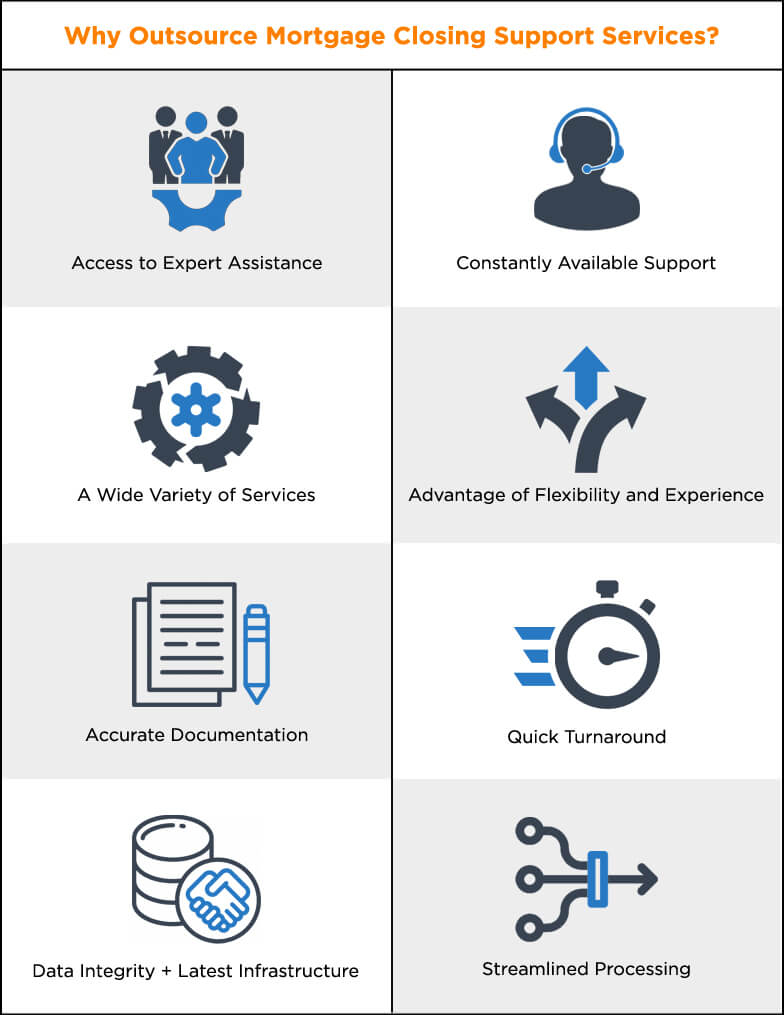
Real estate investments are not only tax relieving but also one of the most crucial financial decisions people make. Certainly, any property buyer would want a deal that suits their needs as well as their bank balance.
That’s where mortgage closing costs become a crucial influencer.
Mortgage closing costs are charged in addition to the price of the property. They include different expenses for a broad range of support services incurred during a property sale. However, most of them are negotiable.
So, if a buyer knows the right way to interpret closing costs, they can reduce their total.
That desire of a property buyer to lower their mortgage closing costs, and hence the overall cost of their real estate deal, leads to problems for the lender. If the buyer gets a better, less expensive deal elsewhere, they won’t buy from you.
Therefore, mortgage closing professionals have to create an accurate loan estimate form while keeping the buyer’s point of view in mind. For that purpose, you have to take note of the methods buyers typically use to lessen their mortgage closing costs and optimize your offerings accordingly.
Here’s a quick guide to help you with this agenda. In this space, we’ll discuss the cost complexities of mortgage costs and support services that can help you retain customers while helping them save significantly.
Costs Involved in Real Estate Mortgage Closing
Mortgage closing is usually the last phase of any real estate transaction. Also called a settlement, every party involved in a mortgage transaction signs the final documents in this phase.
Mortgage closing is preceded by the lender providing a Closing Disclosure to the buyer. This document is the final loan estimate copy with details about –
- Terms of the real estate loan
- Closing costs, to be paid at the time of mortgage closing
- Breakdown of the monthly mortgage installment
- Taxes and fees for services the buyer shopped for and the ones they opted out of
- A description of changed costs between your loan estimate date and closing disclosure date
- Details of the amount paid by seller and buyer
- Loan calculations
- Finance charge
- Details of the amount financed
- APR-annual percentage rate
- TIP-total interest percentage
- Regulatory information
- Necessary contact information
Closing costs are additional to the price of the property. They are incurred when the ownership of a property is transferred from one party to another. A lender must clarify and justify every penny charged to the buyer under Mortgage Closing Cost as per the law.
As mentioned in an earlier section, Closing Disclosure contains the breakdown of closing costs. Here’s what that breakdown mostly looks like.
| What Do Mortgage Closing Costs Include | |
|---|---|
| Property Appraisal Fee | Fee for Property Inspection |
| Application Fee to Process a New Loan Request | Fee for Running the buyer’s Credit Report Check |
| Origination Fee for Loan evaluation and preparation | Attorney Charges |
| Fee for Assumable Mortgages | Interest on the loan for the time between settlement and first installment dates |
| Fee for Mortgage Broker | Fee for Title Search(conducted to verify that the seller is the legal owner) |
| Title Insurance | Fee for Property Survey |
| Prepayment fee for loans guaranteed by the Federal Housing Administration(FHS,) US Department of Agriculture(USDA,) or the Department of Veterans Affairs(VA) | Prepayable fee for one year worth of Mortgage Insurance Premiums |
| Property taxes | Charges for Setting up an Escrow Account |
| Discount points paid to the lender | Title Transfer Fee |
How to Optimize Your Closing Costs to Influence Buyers
The trick is quite straightforward.
- Look for ways to reduce property closing costs from a buyer’s point of view.
- Then, find alternatives for the particular cost-in-consideration.
Overall, make sure that your mortgage closing offer is close to being as cost-effective as possible.
Of course, the process will require extensive research into what your contemporary lenders are offering to the market. At the same time, you’ll need expert guidance and assistance to pull off a cost-effective, optimal closing disclosure. The complexity of this task is what drives most lenders toward mortgage closing support services.
So, while we suggest you keep that option in mind, also consider the following tips and tricks to address the afore-mentioned concerns efficiently.
1. Be Ready to Negotiate

We’ve been through the different charges included in mortgage closing costs. Together, they can become a significant sum and a buyer may feel uncomfortable paying so much. It’s only evident that they would look around in an attempt to catch a better deal that’s not quite as expensive.
So, expect them to look for cheaper options, compare costs, and return to negotiate with you.
The Loan Estimate form typically contains an itemized list of mortgage closing support services that the buyer explores and tries to find the associated costs for. As a lender, it is suggested to quote prices from your preferred service providers and explore some alternative options as well. That way, you can suggest the buyer to consider other ideal and cheaper mortgage closing service providers.
2. Determine How Much the Seller Can Pay

There are certain closing costs that most sellers agree to pay. While the particulars could vary for different parties, they typically include –
- Commission for the real estate agent
- Title insurance
- Title transfer fee
- Broker’s charges
Whatever the charges may be, it’s important to note that whether a seller agrees to contribute or not depends on the individual’s concession. Some might choose to bear their share while other sellers might refuse. Nevertheless, a buyer who knows that sellers can be approached about sharing closing costs would undoubtedly ask.
Keep an analysis handy and suggest all costs that can be transferred to the seller for payment. Let the buyer convince the seller at this point. It lends you the reputation of a lender who cares for their buyer’s needs and strives to provide maximum value. And, it costs nothing on your part but a bit of added analysis.
3. Consider the No-Closing-Cost Mortgage Refinance
A no-closing-cost mortgage is not suitable for every buyer. Many of them might not know about or might not consider it essential. But, in a few cases, for qualified buyers, it might just be what they need.
With a no-closing-cost mortgage, the buyer wouldn’t need to pay any upfront cost at the time of closing. That’s perfect for people who don’t have enough to pay off the upfront closing statements. It’s also an ideal solution for buyers who are moving between properties or plan to resell soon.
Now, a well-informed buyer would ask for the no-closing-cost option, since not every lender offers this service. But, some buyers might not be aware that such a possibility exists. To make a good impression, you can present the buyer with two options –
- Interest and premiums with closing costs
- Interest and premiums with no-closing costs
Present both options to a customer who is likely to benefit from a no-closing-cost refinancing.
4. Locate Potential Savings in the Loan Estimate Form

Take a look at all the mortgage closing support services you’re offering in the Loan Estimate form. Pinpoint the ones that a buyer can opt-out of.
For instance, Title Survey is an expensive process that verifies a seller as the rightful owner of the real estate. So is settlement and Title Insurance. If you quote your best service providers, and that turns out to be too expensive for the buyer, they will simply opt-out.
To avoid that, you can keep a few alternate providers into consideration. But, at the same time, be ready for the possibility that a buyer may not choose to take those services. That will bring the value of closing costs down.
Likewise, other parts of the Loan Estimate form where a buyer can locate potential savings include pest inspection, property survey, escrow account set-up, etc. Make a note of such items and proceed accordingly.

Overcome the Challenges of Mortgage Closing with SunTec India
SunTec India offers a broad range of real estate support services, including mortgage closing. As an industry leader in this domain, we create specialized solutions for lenders, tailored to their requirements. With a dedicated team of experienced professionals, we help you leverage the latest technology and infrastructure.
To know more or avail our expert mortgage closing support services, write to us at info@suntecindia.com.

